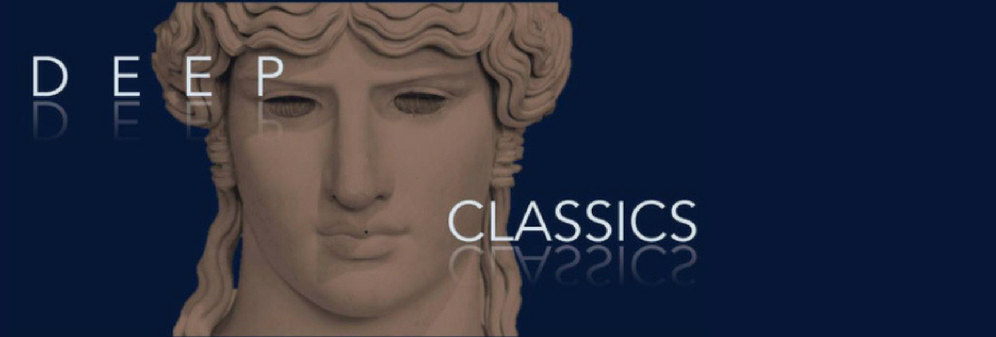Deep Classics is a major new research initiative at the Institute of Greece, Rome, and the Classical Tradition. Launched in 2013, Deep Classics offers a new approach to the study of classical reception.
What is Deep Classics?
Fragmented, buried, and largely lost, the classical past presents formidable obstacles to anyone who would seek to know it. Deep Classics is the study of these obstacles and, in particular, of the way in which the contemplation of the classical past resembles - and has even provided a model for - other kinds of human endeavour. What, for example, does the study of the ancient past teach us about our encounters with our own more recent but still elusive memories? What do our always partial reconstructions of ancient sites tell us about the limits of our ability to know our own world, or to imagine our future? What does the reader of the lacunose and corrupted literatures of antiquity learn thereby about literature and language themselves? What does a shattered statue reveal about art, matter, sensation, experience, life? Does the way in which these vestiges of the past are encountered - sitting in a library, standing in a gallery, moving through a ruin - condition our responses to them and alter their significance? And finally, how has the contemplation of antiquity helped to shape seemingly unrelated disciplines, including not only other humanistic and scientific epistemologies but also non-scholarly modes and practices?
Deep Classics neither begins with antiquity itself nor ends with antiquity's utilisation by subsequent ages. It focuses instead on the very pose by which the human present turns its attention to the distant human past.
Deep Classics Conference 2014
The Institute is proud to continue fostering innovative and exciting research into classics and classical reception. Deep Classics looks likely to be the breeding ground for challenging new research and publications. The first Deep Classics conference took place on 21-22 November 2014 at the Orangery, Goldney Hall in Bristol, with a publication for Bloomsbury in the pipeline.
We were delighted to host a diverse selection of papers by both early career researchers and senior scholars:
- Sebastian Matzner (Exeter): ‘Queer Unhistoricism’;
- Helen Slaney (Oxford): ‘Touching and Moving Encounters with Eighteenth-Century Antiquity’;
- Joshua Katz (Princeton): ‘Etymological "Alterity": Depths and Heights’;
- Stephanie Ann Frampton (MIT): ‘The Depths, the Shallows, and the Myth of Plato’s Phaedrus in Contemporary Media Criticism’;
- David Susanetti (Padova): ‘Circulation of Spectres’;
- Edmund Richardson (Durham): ‘Memory, the Accusing Angel: Spiritualism, Scholarship, and Misdirection’;
- Alex Purves (UCLA): ‘Feeling on the Surface’;
- Joshua Billings (Yale): ‘The Sigh of Philhellenism’;
- Sarah Nooter (UChicago): ‘The Loss of Telos: Pasolini, Fugard, and the Oresteia’;
- Luke Richardson (UCL): ‘Ruins of the Self: Fellini, Fragments and Antiquity’;
- Nora Goldschmidt (Durham): ‘Modernism’s “Deep Classics”’;
- Mark Payne (UChicago): ‘Centaurs and the World Soul: Algernon Blackwood’s Greece’;
- Adam Lecznar (Bristol): ‘Shut Your Eyes and See’;
- Giulia Sissa (UCLA): ‘“Those Greeks were Superficial—Out of Depth”—or Weren’t?’;
- Laura Jansen (Bristol): ‘Borges: After the Pose of Epicurus’.
